
Although South Africa is a multilingual country, the focus of this article is on English common names. The good thing about Afrikaan's bird names – apart from the fact that many are so wonderfully descriptive – is that because Afrikaans is spoken only in this pocket of Africa the names are not subject to the same changes as English names. However, this can be limiting as taxonomic progress is made but not reflected in the names.
As far as other local languages are concerned, the first consolidated list of Zulu bird names was produced as recently as 2020. New names had to be created to describe many of the species and, like many Zulu bird names already in existence, they are often poetic in their mimicry of some sound or behavior relevant to the species. A field guide for Zulu speakers is now in development. This is a monumental step in a South African context: for the first time, Zulu birders have words in their mother tongue to use for all the country’s birds. Sadly, this recent development highlights the fact that other African languages are still lagging in terms of having accessible basic resources for birding.
But back to scientific names and English common names, both of which have been subject to varying degrees of fluidity over the past century and for different reasons. Of the two, scientific names are considerably more static and the instances in which any alteration may be considered are limited. Overwhelmingly, a new scientific name arises from a change in our understanding of taxonomy, which has developed rapidly over the past three decades as a result of advances in genetic analysis.
This story is from the November/December 2021 edition of African Birdlife.
Start your 7-day Magzter GOLD free trial to access thousands of curated premium stories, and 8,500+ magazines and newspapers.
Already a subscriber ? Sign In
This story is from the November/December 2021 edition of African Birdlife.
Start your 7-day Magzter GOLD free trial to access thousands of curated premium stories, and 8,500+ magazines and newspapers.
Already a subscriber? Sign In

EXPLORING NEW HORIZONS
Keith Barnes, co-author of the new Field Guide to Birds of Greater Southern Africa, chats about the long-neglected birding regions just north of the Kunene and Zambezi, getting back to watching birds and the vulture that changed his life.

footloose IN FYNBOS
The Walker Bay Diversity Trail is a leisurely hike with a multitude of flowers, feathers and flavours along the way.
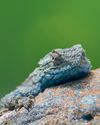
Living forwards
How photographing birds helps me face adversity
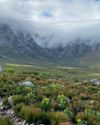
CAPE crusade
The Cape Bird Club/City of Cape Town Birding Big Year Challenge
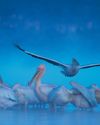
water & WINGS
WATER IS LIFE. As wildlife photographer Greg du Toit knows better than most.
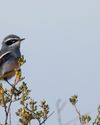
winter wanderer
as summer becomes a memory in the south, the skies are a little quieter as the migrants have returned to the warming north. But one bird endemic to the southern African region takes its own little winter journey.
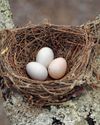
when perfect isn't enough
Egg signatures and forgeries in the cuckoo-drongo arms race

Southern SIGHTINGS
The late summer period naturally started quietening down after the midsummer excitement, but there were still some classy rarities on offer for birders all over the subregion. As always, none of the records included here have been adjudicated by any of the subregion's Rarities Committees.

flood impact on wetland birds
One of the features of a warming planet is increasingly erratic rainfall; years of drought followed by devastating floods. Fortunately, many waterbirds are pre-adapted to cope with such extremes, especially in southern Africa where they have evolved to exploit episodic rainfall events in semi-arid and arid regions. But how do waterbirds respond to floods in areas where rainfall - and access to water - is more predictable? Peter Ryan explores the consequences of recent floods on the birds of the Western Cape's Olifants River valley.
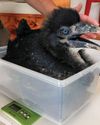
a star is born
It’s every producer’s dream to plan a wildlife television series and pick the right characters before filming.